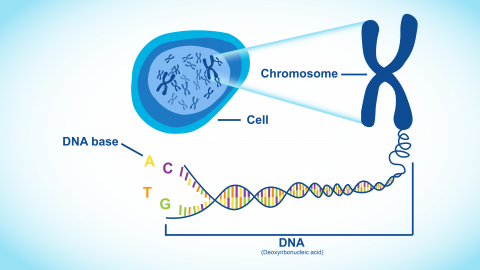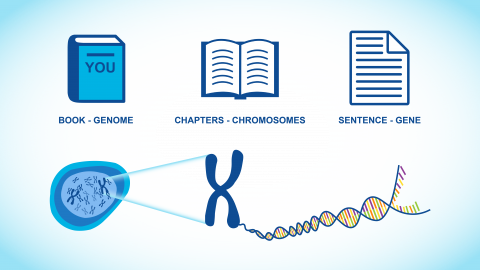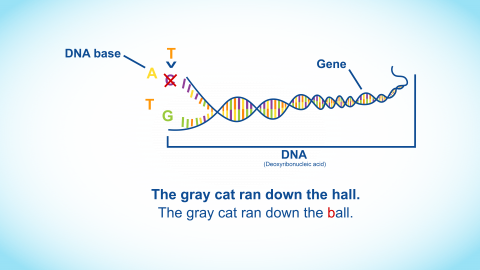A genome is an individual’s complete set of genetic information. Genomics is an area of medical science that examines the genomes of humans and other organisms.
Genomics can be used to prevent, diagnose and treat illnesses, or to track the spread of bacteria and viruses such as COVID-19.
One of the fastest-growing fields of science and technology in the world, genomics is changing the way healthcare is provided.
- What is a genome?
- How can genes cause disability or health conditions?
- Do all gene changes cause disability or health conditions?
- What is the difference between genomics and genetics?
- Why is genomics important to healthcare?
What is a genome?
Your genome is like an instruction manual for your body. It includes your complete set of genetic information.
This information is held in deoxyribonucleic acid (DNA), which is packaged into structures called chromosomes.
Each chromosome includes stretches of genetic code, which are called genes. Humans have about 25,000 genes, and each one gives an instruction to your body. You usually have two copies of each gene, one copy inherited from each of your biological parents.
There are usually 23 pairs of chromosomes in each cell in your body. The entire amount of DNA in the cell – including all 23,000 genes – is called the genome.
If the genome is an instruction manual, a chromosome would be a chapter. Genes would be sentences in that chapter and DNA represents the letters that make up each word.


How can genes cause disability or health conditions?
If there is a change in one of your genes, it may not work properly. This can mean you are born with a disability or health condition, or develop one later in life. Examples of genetic diseases include Huntington’s Syndrome or Cystic Fibrosis – but there are many others.
Do all gene changes cause disability or health conditions?
Every person has many gene changes throughout their DNA. This is what makes us individual. Most of these gene changes don't cause health conditions, but some may.
Genetic and genomic tests look for gene changes (called variants) that may affect your health or cause disability.

What is the difference between genetics and genomics?
Genetics is the study of genes and their effects, one at a time. Genomics is genetics on a larger scale: the study of many or all of your genes.
A genomic test captures information from many genes at the same time. It gives doctors a better chance of finding gene changes that may cause a health condition or disability.
We still have a lot to learn about genes and how they work. Genomics helps scientists make new discoveries much faster than before, and use these discoveries to inform medical care.
Why is genomics important to healthcare?
Genomic testing helps experts diagnose many kinds of conditions.
Melbourne Genomics studies have shown that genomics can help diagnose rare genetic conditions in children, as well as types of cancer, epilepsy, kidney disease, heart conditions, immune disorders, and bone marrow failure.
Overall, 42% of people with cancer and rare disease received an informative result through genomic testing – but only 5% would have had that result without a genomic test.
One in two patients who got a result then had a change in care. Some of them got different medications or procedures that improved their conditions or saved their lives. Others were able to connect to peer support groups.
Genomic sequencing is also used on viruses and bacteria. By sequencing a virus genome, experts can find out how it is spreading and how to stop the spread. This is exactly how COVID-19 transmissions are being tracked.
In short, genomics can provide answers, change treatment, and save lives.
